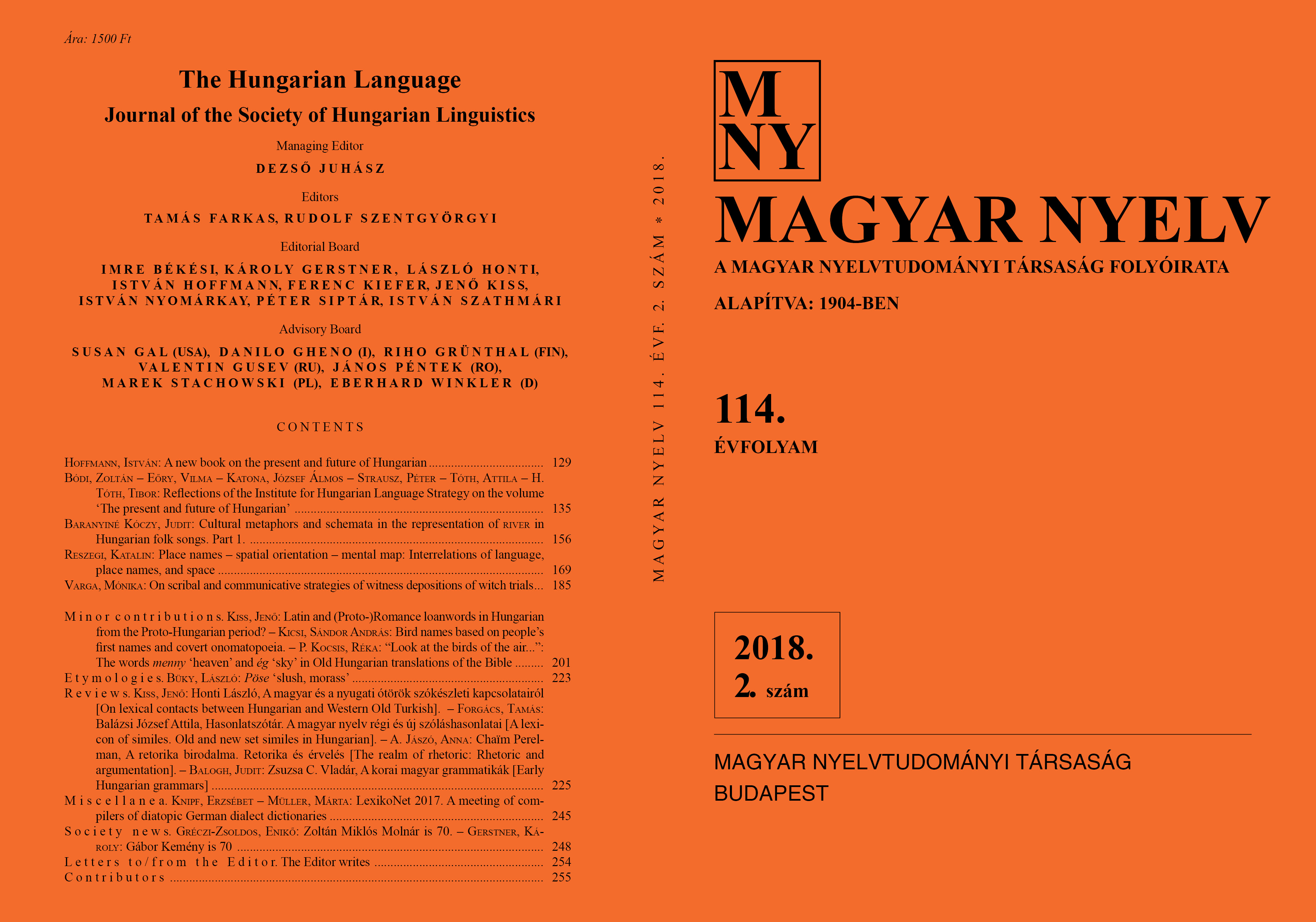Latin and (Proto-)Romance loanwords in Hungarian from the ProtoHungarian period?
DOI:
https://doi.org/10.18349/MagyarNyelv.2018.2.201Keywords:
Proto-Hungarian, putative Latin/Romance loanwords, methodological problems in research on early loanwordsAbstract
A book published in 2016 in Aachen promises a genuine surprise for historical linguistics: the author tries to demonstrate the appearance of Latin and (Proto-)Romance loanwords in Proto-Hungarian (István Fritsche, Koinzidenzen. Eine Studie über echte oder vermeintliche lexikalische Einflüsse der Romania aufs Urungarische. Shaker Verlag). Why a surprise? According to a consensus view of etymologists, such loanwords cannot be attested from the Proto-Hungarian period (prior to 895 BC). The author of the present paper submitted the book to intense study. The result is as follows. The author of the book does not make clear where and when Hungarians could be claimed to have maintained intensive contacts with speakers of Latin or (Proto-)Romance prior to 895 (this would be a prerequisite for borrowing dozens of words). Furthermore, the proposed etymologies do not comply with strict requirements of etymological studies. The author of the book comes up with imaginative ideas but, taking into consideration the unclarified nature of the historical events and the lack of dated presentation of (Proto-)Romance data, these ideas do not pass the test of reliability. In sum: the book does not prove that Latin and (Proto-)Romance loanwords would have been borrowed into Hungarian in the Proto-Hungarian period.
Downloads
Published
Issue
Section
License
Copyright (c) 2024 Jenő Kiss

This work is licensed under a Creative Commons Attribution-NonCommercial-NoDerivatives 4.0 International License.
Magyar Nyelv is a Diamond Open Access periodical. Documents can be freely downloaded and duplicated in an electronic format, and can be used unchanged and with due reference to the original source. Such use must not serve commercial purposes. In the case of any form of dissemination and use, Hungarian Copyright Act LXXVI/1999 and related laws are to be observed. The electronic version of the journal is subject to the regulations of CC BY-NC-ND (Creative Commons – Attribution-NonCommercial-NoDerivatives).
The journal permits its authors, at no cost and without any temporal limitation, to make pre-print copies of their manuscripts publicly available via email or in their own homepage or that of their institution, or in either closed or free-for-all repositories of their institutions/universities, or other non-profit websites, in the form accepted by the journal editor for publication and even containing amendments on the basis of reviewers’ comments. When the authors publicize their papers in this manner, they have to warn their readers that the manuscript at hand is not the final published version of the work. Once the paper has been published in a printed or online form, the authors are allowed (and advised) to use that (post-print) version for the above purposes. In that case, they have to indicate the exact location and other data of the journal publication. The authors retain the copyright of their papers; however, in the case of an occasional secondary publication, the bibliographical data of the first publication have to be included.



